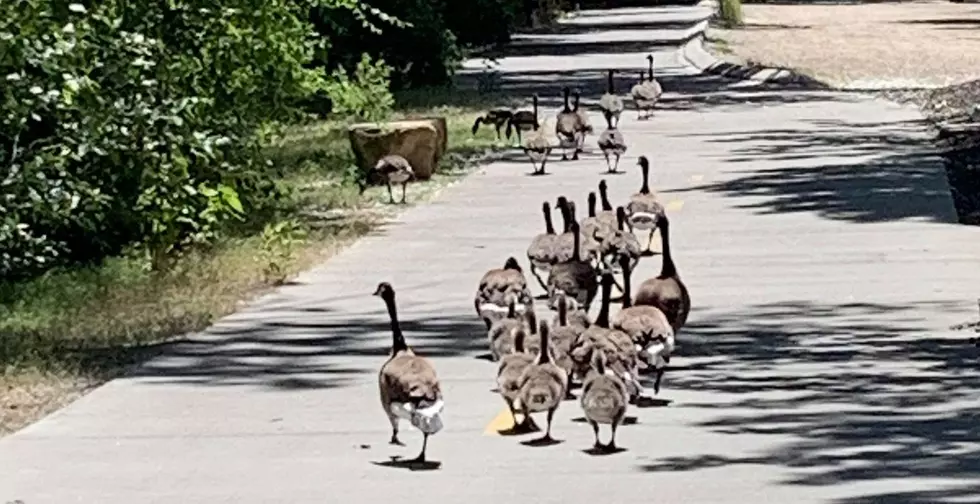
Have You Ever Been Attacked By a Greenbelt Goose?
If you run, ride a bike or otherwise enjoy the Greenbelt, you've no doubt come across roadblocks of geese and their young from time to time. Get too close and they turn into total jerks.
That said, I've always assume that their bark (or in this case, hiss) was worse than their bite until one of my running club friends told us that her husband was attacked by a goose on the HP Campus. As far as she knows, he didn't do anything to provoke it, but the goose dove at his face and knocked him to ground. Luckily, he didn't break anything, but he did end up with bumps, bruises and scrapes.
Apparently, he's not the first one to be attacked by a goose at HP. Back in 2013, the company had enough encounters to send out a memo to all employees at their Boise site telling them how to prevent and survive a goose attack. The Boise VA Medical Center included a similar note about geese on their campus in their 2017 newsletter for March.
Both memos noted that the geese are usually more aggressive mid-March to Mid-May while male geese are protecting their nesting mates. That's when they've been known to come full force at you with their six to 18 pound bodies. If they hit you right, they could knock you off your feet causing you to break a bone or injure yourself in another way when you trip and fall.
It not might be prime nesting season for geese on the Greenbelt, HP and VA campuses, but just in case you catch an angry goose on the wrong day here are some tips from those memos to protect yourself:
- Stare down the goose. They have great vision and can tell where you're looking at and how you're reacting to them, so do not close or squint your eyes.
- Don't turn your back or stop looking at the goose. Use your peripheral vision to navigate around things like curbs, cars and people.
- Keep calm and don't act hostile. If you agitate them more, their spouse is likely to join in on the attack.
- If it flies at you, duck at a 90 degree angle while maintaining eye contact.
BTW, according to the VA memo the Canada geese that we have here in the Treasure Valley is protected by the Migratory Bird Act so it's actually illegal to hurt them, their little ones or their eggs.
More From 107.9 LITE FM









